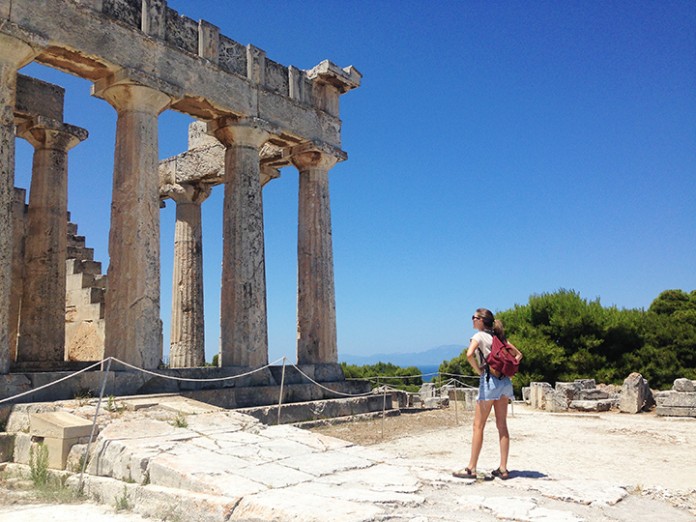By Helena Hunt, Staff Writer
Baylor students returning from summers abroad and in large cities must take what they have learned to school with them.
Although students gather at Baylor each fall, during the summer they have the opportunity to live and study where they like. Students can participate in mission trips from Ghana to Peru, study abroad in places like Maastricht and Costa Rica, and intern all over the world.
But after the excitement of the summer, students who pursue these opportunities must leave them behind to return to Baylor in the fall. San Antonio senior Kara Kopchinski went farther from home than she’d ever been when she participated in an archaeological dig in Athens, Greece, this summer.
“Athens was always busy and always moving,” Kopchinski said. “But even though the city was very busy, the people were very relaxed.”
Kopchinski said she had the opportunity to become familiar with a culture that was initially alien to her, eventually becoming more comfortable in Greece than she had once expected. Baylor students do not have to travel across the world to experience big city life, however.
Cedar Park junior Lydia Williamson spent seven weeks in New York City this summer completing an internship with the Nomi Network, a nonprofit that seeks to alleviate human trafficking.
“It was great to settle in and really live somewhere, because I wasn’t a tourist, even though I did some touristy things,” Williamson said. “It’s a very different thing to be a tourist and then to really experience the things around me.”
Living in New York also allowed Williamson the opportunity to experience a culture that was vastly different from her own.
“It was a really great place for me to learn and be in an environment where the things we were talking about, like racial, social, and economic inequality and human trafficking, are actually happening,” Williamson said. “It made all these issues relevant to me, whereas in a primarily white middle-class suburb like Cedar Park, those things feel farther away.”
Mission trips present another opportunity for students to become immersed in unfamiliar cultures. Waco sophomore Audrey Hamlin participated in a Buckner International mission trip to Guatemala for a month this summer. In the town of San Jose Pinula, she saw both differences and similarities between American and Guatemalan cultures.
Hamlin said that she was struck by the similarities she shared with those she was trying to help through education and medical outreach.
“I think American mission trip culture is about difference, and not embracing the things we share,” Hamlin said. “We want to impose things on them, but we don’t want to learn from them. I don’t think I have anything more to offer to people who are just like me. I think I have just as much to learn from them”
Although she noted the equality between herself and the people she was sent to help, she also recognized some differences, including an emphasis on relationships over efficiency.
“It was a Latin American culture, where they’re more focused on people than on time,” Hamlin said. “I found that speaks now so much into my social interactions here at Baylor, and I think my priorities are in a much better place now.”
Robert Leis, Baylor’s exchange program and study abroad adviser, described the difficulty students like Hamlin may have in bringing her new priorities Baylor.
“I think any time anyone has a big experience there is the difficulty of coming back and realizing that your view of the world has changed but not everyone’s view of the world has changed with you,” Leis said. “Even though nothing has really changed, you’ve changed. It’s reverse culture shock, really.”
Williamson said that coming back to Waco required an adjustment for her as well. After being confronted with social disparity in the workplace and in New York City, she has had to bring her new knowledge to Baylor.
“I’m trying to reconcile who I have become with these old habits and patterns that I was living in. It’s really challenged me to question, as I fall back into old habits, ‘Is this a good habit? Or is this something I need to rethink?’” Williamson said.
Williamson learned how to maintain a more sustainable lifestyle at her internship in New York. However, now she must learn how to transition those changes into her life at Baylor.
“How does what I’ve learned about food injustice apply to having a meal plan and having to eat in a dining hall?” Williamson said. “What does it look like for me to encourage students to buy fair trade clothes when in reality those are a lot more expensive? But I think I’ve realized that I have to take it a step at a time, and I can’t just be this world-changer who only eats organic food.”
Although Hamlin said that is has been difficult for her to readjust to Baylor, her memories of Guatemala have eased the transition.
“Remembering the people I was with has helped the most. It’s a beautiful thing to have something to miss,” Hamlin said.






